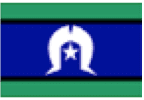On Close the Gap Day, Thursday 18 March 2021, we reflect on the health, life expectancy and access to justice gaps between indigenous Australians and non-indigenous Australians.
To understand why this day is so important we only need to look at the truly sobering statistics.
Despite Australia being a prosperous and developed nation, Aboriginal and Torres Strait Islanders have some of the world’s highest mortality rates. Access to adequate health care, employment opportunities and education remain significantly lower than for non-Indigenous Australians.
Racism is a very real factor in the lived experience for many First Nations People causing pain and affecting them every day.
Despite these odds many First Nations People continue to strive to make a difference.
We can all hear and listen to their stories. We can all be partners in this.
Equality before the law
SSRV supports Close the Gap, acknowledging that international research that tells us unresolved legal problems impact health outcomes by causing stress, anxiety, and poverty.
As a community legal centre, we are aware of the role of justice in achieving positive outcomes, and keeping the health and wellbeing of Indigenous Australians at the forefront of the national agenda is a key focus of our work.
A cornerstone of our legal system is equality before the law and yet, despite some small gains, for First Nations People the gaps remain.
What we can all do on Close the Gap Day
Here are three ways we can all advance the objectives of Close the Gap:
- Sign the Close the Gap Pledge
- Sign up to Close the Gap newsletters (click on the first web link)
- Read up on the issues
What we are doing at SSRV
To mark Close the Gap Day, SSRV are holding a short lunch time reflection session for staff.
During the session, we will discuss current and systemic issues, focusing on justice outcomes and how we, as a justice organisation, can work towards ensuring we are accessible and safe for our Indigenous clients, partners and supporters.
In the longer term, we are working at making our organisation more culturally safe and respectful and looking at ways we can change our practice.
We want to better engage and respond to First Nations clients and community and build our partnerships and listen to their voice. In this way we hope to grow in our understanding and conduct to work alongside First Nations peoples to improve justice outcomes and impacts.
To this end we have been developing our Reconciliation Action Plan, which serves as a starting point for individual and organisational action, responsibility and reflective practice to inform continuous improvement.
An acknowledgement to country at all our events is now established, and we’ve introduced a regular item at our staff meetings:
In what ways can we change our practice to better meet the needs of Aboriginal and Torres Strait Islander clients and communities? How can we reach/ engage and work in a client centred /strength-based way with Aboriginal and Torres Strait Islander clients and make a difference? Reflect and Discuss.
We hope you too will share in making a difference and closing the gap.




